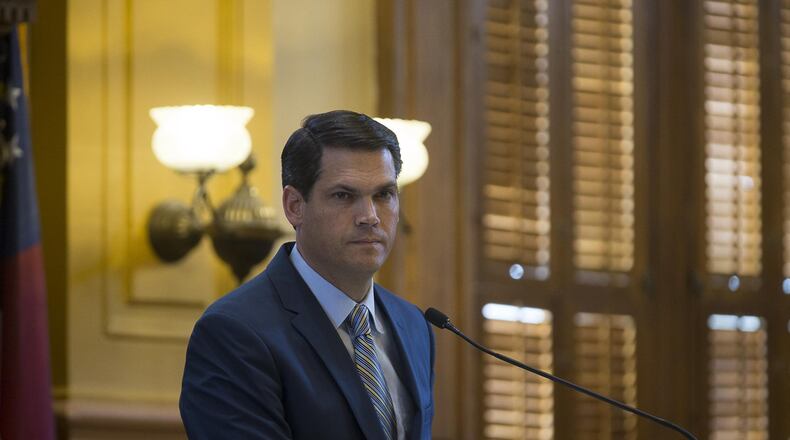Just using data better might save the state $600 million in what it spends on publicly funded medical care.
That was one of the takeaways from a task force meeting Thursday at the state Capitol on the cost of health care and access to it.
Lt. Gov. Geoff Duncan convened the meeting with the goal of guiding future legislation, he said.
“Ultimately, the goal of this task force is to create a plan,” Duncan told the attendees. “It’s not already written. But to create a plan for us to be able to tackle some of the biggest initiatives in Georgia.”
The state is responsible for billions of dollars in health care spending, including through programs such as the state employees’ health plan and Medicaid, the government insurance program for poor children and some adults. That’s just one issue the state has. In addition, the poor state of Georgia’s health care in general is a weight dragging down economic development.
Duncan announced the task force as a means to find private-sector-oriented solutions for Georgia health care. Thursday’s meeting was the first of several, and it focused on data.
Department of Community Health Commissioner Frank Berry spoke of the antiquated data system that the DCH uses, and how it hamstrings the state in being able to move fast and use the data to make decisions. The database is a proprietary system of a contractor to the state, Berry said, so the state doesn’t have flexibility to go in quickly and get the data in the form it wants.
The data company executive who suggested that a $600 million savings could be on offer was Ian Juliano, the CEO of Trella Health and a longtime friend of Duncan’s. He was speaking of Georgia’s Medicaid program for Aged, Blind and Disabled patients, a very expensive program.
Trella Health holds data on millions of Medicare patients in its own proprietary database. It analyzes the data to judge which decisions have led to better outcomes and cost savings, and then replicates those decisions in similar situations going forward. One example is whether and when to spend money on home health care.
The task force also heard from speakers on telemedicine and using data analytics to detect fraud. The committee, which includes health lobbyists, officials and policymakers, is scheduled to meet again Oct. 9.
About the Author
Keep Reading
The Latest
Featured





